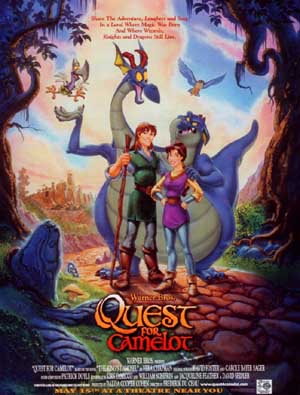Antz
Posted on December 13, 2002 at 5:16 am
The technological mastery and all-star cast all but obscure the one real problem of this movie — it does not know who its audience is. The computer animation — and the ad campaign — suggest that it is directed toward the audience of its predecessor in this genre, the classic “Toy Story.” That movie focused on themes that touched both children and adults. “Antz,” instead, seems to have spent most of its energy on its astonishing visual effects and outstanding voice performances by some of Hollywood’s top stars, with its theme of individual spirit in a world of conformity an afterthought, and a muddled one at that. The witty script aims its humor at adults who can appreciate the in-jokes. The characters have little kid appeal, and the violence, including the deaths of two characters and the slaughter of thousands of animated “extras,” is much too intense for younger children.
Woody Allen provides the voice of Z, the movie’s hero, and we first see him on the analyst’s couch, complaining about his feelings of inadequacy. A worker ant among millions of others, he longs for some individuality. When he meets the ant princess Bala (voice of Sharon Stone), he longs to see her again. So he persuades his friend Weaver (voice of Sylvester Stallone), a soldier ant, to switch places with him. Weaver enjoys being a worker, but Z finds to his horror that he is being sent into battle by the meglomaniacal General Mandible (voice of Gene Hackman). He is befriended by Barbados (voice of Danny Glover), who is killed, along with all of the other soldiers. Only Z escapes, and it is up to him to rescue the rest of the ant colony from Mandible.
The visual effects are dazzling, and the movie also provides a welcome reminder that performers as inextricably linked to their apearance as Allen, Stallone, and Stone are capable of superb vocal characterization. Parents will want to talk to their children about when to question authority, how to balance individuality with community norms, and how what seems like garbage to us may be “Insectopia” from another perspective.

